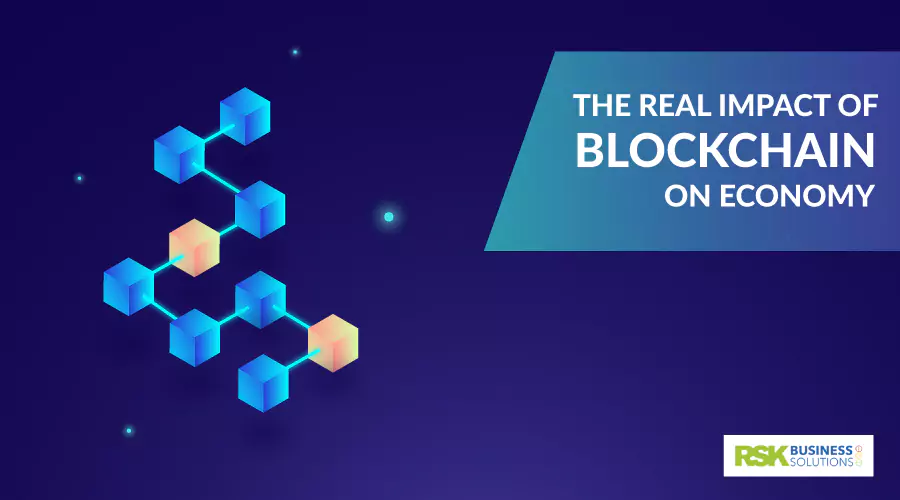The Real Impact of Blockchain on Economy
Before we get on to the impact blockchain service and blockchain software have on the economy, let’s study the emerging blockchain trends.
Federated Blockchain
It is an advanced form of the basic blockchain model. Similar to Private Blockchain technology, federated blockchain provides a more customizable private blockchain development. Operating under the leadership of a group, federated blockchain has higher scalability and provides more transaction privacy.
Use Cases Of Federated Blockchain
- Supply Chain Management
- Insurance Claims
- Organization Records Security
- Financial Services
- Multiparty Aggression
Content Streaming
With the rise of popular video streaming networks like Netflix and Amazon Prime Videos, there is no questioning that content streaming is the emerging blockchain trend. The Theta Network, powered by blockchain, allows decentralised video streaming by storing individual user data and easy accessibility to it.
Use Case Of Content Streaming
- Content Independence
- Content Conceptualization
- Censor-free Content Distribution
Blockchain As A Service (BaaS)
BaaS is a cloud-based service which enables the users to develop their digital products like applications, smart contracts and any other kind of digital services that can function without a full-fledged blockchain-based infrastructure.
Use Cases Of Blockchain As A Service (BaaS)
- Performance Contracts
- Resource Sharing
- Single Window
- Contract Execution
- Document origin Tracking
Interoperability In Blockchain Technology
The ability for different blockchain platforms to easily share data and information to each other is its measure of interoperability. Data is easily visible and accessible to the public across multiple blockchain networks.
Use Case Of Interoperability
- Trade, lend, borrow BTC in peer to peer and a fully decentralized manner.
- Healthcare provider directory
- Workflow care plan management
Hybrid Blockchain
Depending on its architecture, hybrid blockchains lies somewhere between the private and public blockchains. They are basically a mix of private and public to limit the disadvantages of both and bring to picture the benefits only. Hybrid blockchains are essentially transparent and accessible to the public while the modifications remain controlled.
Use Case Of Hybrid Blockchain
- Banking
- Supply chain enterprise services
- Hybrid IoT
Stable Coins
The use of cryptocurrency has been seeing a rapid rise. Its value is either tied to the price of a commodity, or the operation of an algorithm, making it the siding product of blockchain technology.
Use Cases Of Stable Coins
- Global Currency
- Decentralized Financial Services
- Create Stability In Cryptocurrency
- Streamline Recurring & P2P Payments
Security Tokens
As opposed to ICOs that would often result in frauds, STOs are crypto tokens that are protected, regulated and legally compliant. It securely allows companies to put stocks to artworks onto tradable crypto tokens.
Use Cases Of Security Tokens
- Investment Banks
- Money Exchange
- Media
- Development
How will blockchain change the economy
Changing the value of assets
The concept of shared ownership has come true where commodities can be partly owned by anybody and everybody.
Eg – The rental model. One product, numerous owners over time.
A shift in responsibilities
With complete data availability possible on blockchain platforms about a commodity, information becomes more transparent.
Change in the concept of ownership
The shift in materialistic ownership is possible through blockchain networks that allow shared ownership. This leads to less production of commodities leading to the usage of otherwise underutilised assets.
Cryptocurrency is the future
Remember the time when there was a rapid transformation from landline phones to mobile phones? It was a boon for developing nations as it was easier to acquire mass amounts of cell phones than build new infrastructures for landlines. Similarly, digitization of transactions runs the world and cryptocurrency in the near future.
How is blockchain reshaping our economy
Blockchain gives way to a decentralized way of organizing society from the ground-up instead of the capitalist top-down models.
Moving towards a circular economy
The economy will see a gradual shift from the current ‘exponential growth model’ to a more ‘steady-state sharing model’ that will incentivise people to add value to by circulating and reusing what is already produced.
Bancor Protocol
The Bancor is a smart contract protocol allowing individuals to build their own currency on Ethereum. Bancor has been described by Bernard Lietaer as facilitating a “peaceful transition from the conventional national currency networks to a post-industrial blockchain space.”
Individually-issued currencies
Governments aren’t able to tackle environmental issues due to their national currencies being tied up in corporate, personal and national debt. Hence, we will see a growth of more such individually created, issued and operated currencies using blockchain to tackle environmental issues
Rise of decarbonizing and regenerative farming
Nori tokens are a new currency that strives to create the first universal price on carbon removal using the blockchain technology marketplace. These tokens serve as digital certificates for corporations trying to boost their sustainability image.
Another project that rewards its users with XRN tokens is the Regen network. It aims to generate data about the health of ecosystems, allowing organizations to allocate and distribute funds to projects that need it the most.


 Share
Share Post
Post Tweet
Tweet Copy
Copy


















